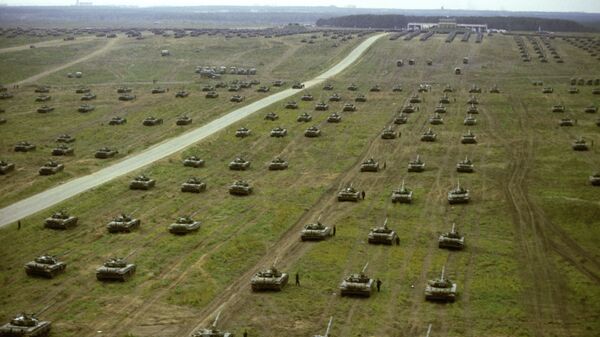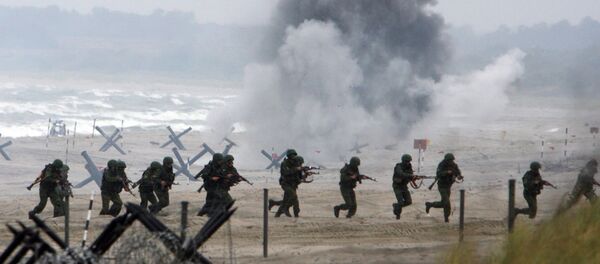MOSCOW (Sputnik) — Kremlin spokesman Dmitry Peskov has dismissed claims of insufficient transparency of the ongoing Russia-Belarus Zapad-2017 military drills as a provocation.
"I can certainly say that any accusations in that respect are hardly acceptable as the [Russian] Defense Ministry always maintains the maximum possible level of transparency during exercises," Peskov told reporters in a conference call.
"We believe that the wave of hysteria around these exercises is absolutely provocative, as it is a common practice, it is the right of any country and the usual practice of carrying out such exercises. Everything is done in strict accordance with the international law and the relevant rules," Peskov added.
He also said that Russian President Vladimir Putin may attend the drills which have kicked off today. Up to 12,700 servicemen (about 7,200 from Belarus, some 5,500 from Russia), up to 70 aircraft and helicopters, up to 680 items of military equipment, including about 250 tanks, up to 200 guns, multiple rocket launchers and mortars, and up to 10 warships take part in the drills.
However, NATO Secretary General Jens Stoltenberg said that the alliance does not see any imminent threat posed against any NATO member by the drills.
In their turn, senior Russian and Belarusian officials reiterated that the drills do not pose any threat to other states and are exclusively defensive in nature. Moreover, Belarus President Alexander Lukashenko stated earlier that these exercises would be open for foreign observers. The Defense Ministry of Belarus reported in August that observers from seven countries — Ukraine, Poland, Lithuania, Latvia, Estonia, Sweden, Norway — were invited to the event.
When commenting on NATO states' reaction to the planned drills, the Russian Foreign Ministry said earlier that increasing military presence of NATO in Eastern Europe went unnoticed amid groundless criticism of the Russian-Belarusian Zapad-2017 military exercises.
Moscow has repeatedly criticized the increased presence of the alliance’s troops and military facilities near the Russian border. Moscow has said Russia had never planned and does not plan to attack any NATO member.



